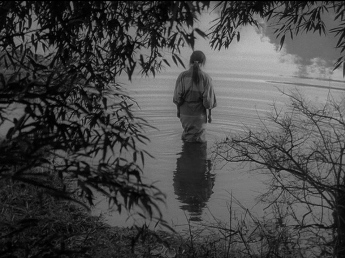Is it not somehow appropriate that Jim Jarmusch’s latest film vanished from theaters with barely a word of notice, as if it were some hot piece of contraband? Though undeniably of greater interest than Coffee and Cigarettes or Broken Flowers, The Limits of ControlDead Man. All this despite a masterful trailer, an awesome one-sheet, and a hipster nod to Boorman’s Point Blank. Unlike that Lee Marvin classic, though, The Limits of Control scarcely revels in violence and, more unforgivable, attempts nothing like a wholesale appropriation and satire of the more vulgarian strains of its day. provoked critical rebukes like nothing since
Indeed the most startling quality of The Limits of Control is its muted coolness. It proceeds by evocations so sanguine that even Bill Murray’s neocon villain feels like a breezy afterthought. That’s a compliment; so many American films of the last eight years have either ignored the gravity of the Bush administration malfeasance or ‘addressed’ it with incoherent and ultimately cowardly speechifying (c.f., Lions for Lambs). It’s refreshing that Jarmusch simply takes this ideology as a given, something that can be detected, understood, and condemned through temperament alone—that is, as a pervasive and arrogant fact of the modern political landscape.
It is too simple (and generous), however, to regard The Limits of Control as a leftist revenge fantasy. If this is a revolutionary call to arms, it is one delivered in pictograms. Faux antique matchboxes act as conduits for international intrigue, pervasive enough here to inspire a semiological tract. Boring, barely whispered conversations impart clues dangerous enough to imperil lives. Above all, The Limits of Control comes across as the illegitimate great grandchild of Louis Feuillade’s serials. Jarmusch achieves the same fugitive quality as Fantômas or Les Vampires, as if the pedestrian material of mere reality had been coerced into smuggling all manner of obscure terror. The café, the train station, the hotel—these are sites of unconscious menace. J. Hoberman once invoked the poet Paul Éluard—“There is another world, but it is in this one”—to describe Feuillade; that surrealist epigram applies no less to The Limits of Control, where two espressos portend a global conspiracy and “I don’t speak Spanish” stands in for the devil’s passkey.

1 comment:
I am new to your blog and found that you have made an amazing blog. I like the information that you have provided on older movies.
Post a Comment